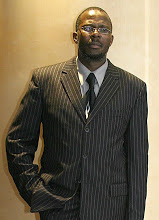"Transformation of the justice system was not just about race and gender,but 'more' about making justice accessible to all" President Jacob Zuma told the 2nd Judicial Conference of South African Judges in Pretoria on Monday.
Justice, Zuma stressed an emphasis, should be of a high standard and must be attained 'justice seen to be done' without undue delay.
"There was a need to recognise the South African law, and we should work owards creating courts which are no longer instruments for the select few (elites) ut our courts must be representatine of the rights of all the masses of our people" observed Zuma
The appointment of the new judges must be biased to those committed to the new democratic order.
Even the Republic of South Africa's Constitutional Court Chief Justice Pius Nkonzo Langa seemed to be on the same wavelength with the country's president.
Langa urged his judges to ponder themselves about the 'essence of being a judge in such a diverse society like South Africa'.
Fellow South Africans,what is your take over the President's view onthe role of the judiciary in a transforming society?
Are we doing enough to speedily transform all the levers of power in our Rainbow Nation?
However, the President of the Supreme Court of Appeal, Judge Lex Mpati,has set the cat among pigeons regarding the transparent process that was used in appointing judges in South Africa at present.
Mpati was making his presentation about the independence of the judiciary on Tuesday.
"The only criticism that I have or rather that I have come across is that although the process of interviewing candidates for judicial appointments is open to the public and the media, the Judicial Services Commission deliberations on whether a particular candidate is suitable or not are held behind closed doors" noted Mpati.
The central and/or pertinent question to ask, posed Mpati, was how entirely transparent is the process of appointing judges in South Africa.
Further, Mpati cited the reservations held by the late Constitutional Court Chief Justice Ismail Mohamed in the late 1990's.
"The culture of judicial independence must be sustained with a process of appointment to the bench which is fair, transparent and reasonable, and in which judicial input is substantial and manifest" Mohamed had observed.
And the RSA President had noted that transformation of the judiciary must ensure improved access to justice as it addresses the issues of language,procedures and proceses, as well as other issues that may alienate the poor masses from the justice system.
"Envisaged in the constitution is a rationalised court system and the Superior Court's Bill aims to craete a single judiciary.
The Superior Court's Bill seeks to address, among others, the rationalisation of the composition, areas of jurisdiction and structures of the superior courts, which are still largely constituted in accordance with the Superior Court's Act of 1959" explained Zuma.
He further noted that even the promulgation of the South African Judicial Education Institute Act provides for the establishment of an institute to train both aspirant and serving judges and magistrates to improve the quality of the outputs of the courts.
'The training of aspirant judicial officers will go a long way to establish a wide pool of black and women practitioners from which more judges and magistrates may be appointed" concluded Zuma.
Meanwhile, there's been a call made by the judiciary to administer their own budget.
Chief Justice Langa has proposed that the judiciary should be empowered to administer courts and also regulate its own funds.
Commentators have argued that this proposal runs counter to the Superior Court's Bill which proposes that the administration of the courts remain the preserve of the Department of Justice.
Langa has also implored judges to be cognisant of the case management rules, current rules of practise and procedures to ensure that these factored to promote rather than obstruct people's access to courts.
Langa also concurred with the President of South Africa's sentiments regarding the independence of the judiciary.
"Judges will continue to adjudicate matters fearlessly, we wil not bow to any pressure regardless of the source as we will be guided by conscience and the rule of law. We are only accountable to the Constitution and judges are committed work, transform the system for the benefit of all the South African communities" noted Langa.
Tuesday, July 7, 2009
Subscribe to:
Comments (Atom)


